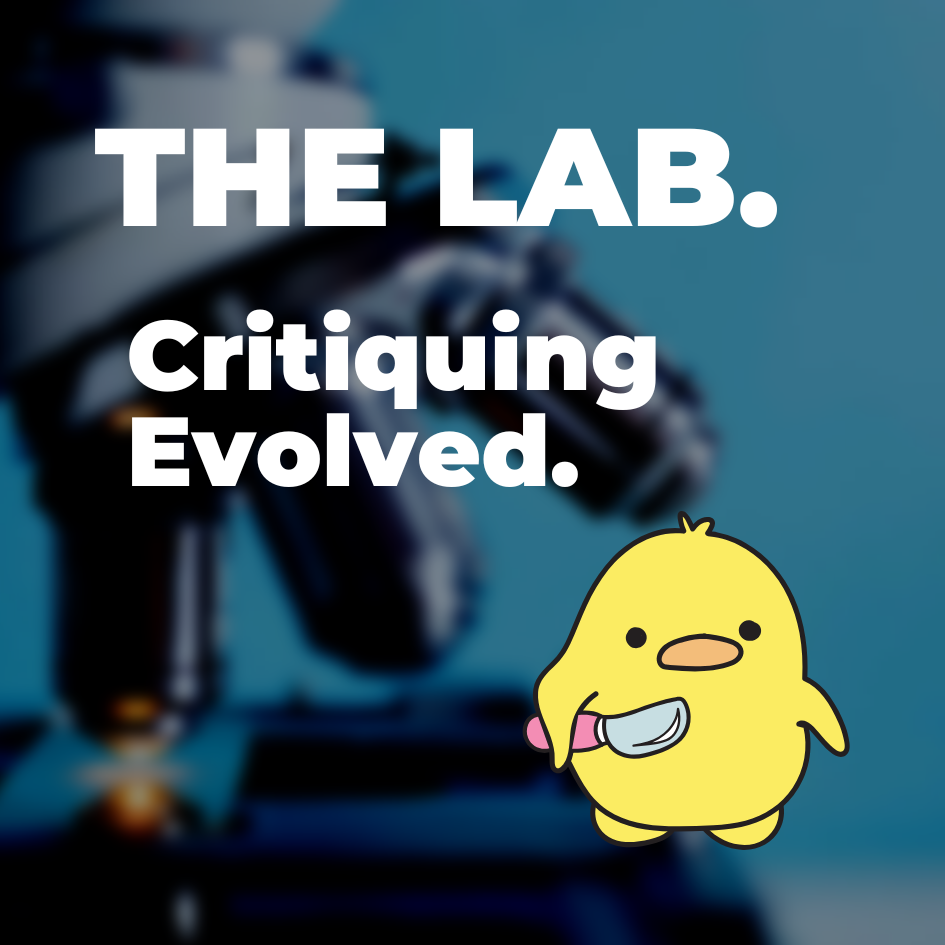Came across this TED talk. It rang a bell with me because so much fantasy is being written that I wonder how writers get their readers to immerse themselves in it. It beats me how the likes of Tolkein captured me with only his imagination. It seems to me one has to be a genius to create a whole new world and then tell a story within it. I have no choice but to stick with reality, but at its edges, as most of it is boring.
Click for more details
Navigation
Install the app
How to install the app on iOS
Follow along with the video below to see how to install our site as a web app on your home screen.
Note: This feature may not be available in some browsers.
More options
Style variation
-
Café Life is the Colony's main hangout, watering hole and meeting point.
This is a place where you'll meet and make writing friends, and indulge in stratospherically-elevated wit or barometrically low humour.
Some Colonists pop in religiously every day before or after work. Others we see here less regularly, but all are equally welcome. Two important grounds rules…
- Don't give offence
- Don't take offence
We now allow political discussion, but strongly suggest it takes place in the Steam Room, which is a private sub-forum within Café Life. It’s only accessible to Full Members.
You can dismiss this notice by clicking the "x" box
You are using an out of date browser. It may not display this or other websites correctly.
You should upgrade or use an alternative browser.
You should upgrade or use an alternative browser.
Authenticity
- Thread starter Steve C
- Start date
Invest in You. Get Full Membership now.
- Status
- Not open for further replies.
I think the talk gives the answer. You get your readers to immerse by writing authentic characters.Came across this TED talk. It rang a bell with me because so much fantasy is being written that I wonder how writers get their readers to immerse themselves in it.
Tolkien was an anomaly. His approach to world building was unique (some might say freakish). His way of working (to derive entire peoples and their history from invented languages) is not the norm, and most speculative fiction authors would agree. Most speculative fiction authors, when it comes to world-building, deal in what ifs... What if you could live on the sun? What if you could stop time? What if there was a monster under your bed? And once you've got your what if? you tell a story about how authentic characters respond to it.It beats me how the likes of Tolkein captured me with only his imagination. It seems to me one has to be a genius to create a whole new world and then tell a story within it.
You don't build a whole world (unless you are Tolkien). You build the bits you need to serve your story. And when you've done all that, which bits do your readers remember most? Well, the authentic characters, of course.
I don't believe any part of that sentence.I have no choice but to stick with reality, but at its edges, as most of it is boring.
So very true, no matter what you write... that invisible element, authenticity, must be there.
- Thread starter
- #4
Well, I was fibbing/generalising a little but the edges are more interesting than the middle, bit like cake reallyI don't believe any part of that sentence.

More seriously, I do find the bits of fantasy I come across place more emphasis on the world than on the characters. As a youth, I devoured Isaac Asimov but his fantasies tended to be off-world and how the real world dealt with them, albeit in different time zones. It may be a symptom of my age in that I can rely on experience as a framework. If I was younger I'd have to make it up. It may well be one of the few advantages of being an oldie
I do find the bits of fantasy I come across place more emphasis on the world than on the characters.
I haven't noticed that in the fantasy I read, and I read 5 or so books a month (and I'm trying to increase that). It's not really fair to compare Asimov to the authors of today; they're different beasts. The world and character go hand in hand.
Invest in You. Get Full Membership now.
I do find the bits of fantasy I come across place more emphasis on the world than on the characters.
I think there's a simple reason for this apparent discrepancy. I'm going to go out on a limb here and express a *strong* opinion [brace yourselves].I haven't noticed that in the fantasy I read...
Most speculative fiction (broadly speaking, science fiction, fantasy and horror) is crap.
There. I've said it.
The fantasy market especially (I know, I write fantasy) is saturated with bland, derivative crap. Seriously, you could drown in it.
But... the fantasy novels that people talk about weeks, months, years after their release are precisely the ones that do have authentic characters, questions and themes. It's just that so many authors never get beyond the surface – Wow, dragons, spaceships, monsters! – that it's easy to drown in the aforementioned sea of crap. Don't get me wrong, I'm not saying anything has to be highbrow, elitist, or life changing. But it does, as the man said, have to be authentic.
I loved Asimov when I was younger as well (still do, but differently). But his stories are intellectual explorations of what if? There's a reason why his core fan base tend to be engineering students called Dave. Speculative fiction has grown since Asimov's day. It's matured (the good parts of it, anyway). Now, just like in any other form of commercial fiction, successful speculative stories are about authentic characters.I devoured Isaac Asimov but his fantasies tended to be off-world...
- Thread starter
- #7
Huge LOL here. I was an engineering student called Steve. Only for a year though then I slipped into the trendier social science faculty.his core fan base tend to be engineering students called Dave.
Yep, agreed. Sometimes it's hard to find good examples to learn from. And then I read Ken Liu's stuff and weep for how bad a writer I am ...Most speculative fiction (broadly speaking, science fiction, fantasy and horror) is crap.
Invest in You. Get Full Membership now.
Robert M Derry
Basic
I think the key to creating a good fantasy world is to make it seem functional. The political, economic, social and technological structures need to feel plausible in order for the reader to believe in it.
I think Brent Weeks' Lightbringer series, Game of Thrones and Hyperion by Dan Simmons, which I'm reading now, do this really well.
I think Brent Weeks' Lightbringer series, Game of Thrones and Hyperion by Dan Simmons, which I'm reading now, do this really well.
Most speculative fiction (broadly speaking, science fiction, fantasy and horror) is crap.
I third that. I have read some stuff that's just all "surface" and no "deep/third wheel" as Lisa Cron describes it in Story Genius. I'm pretty picky usually and it pains me that in order to find comp titles, I need to wade through so much crap, but I've recently found Daniel Greene on Youtube and I feel his recommendations are solid (even if slightly skewed from my own preference). But there are definitely fantasy authors who build characters (and fabulous worlds).
- Thread starter
- #13
Come the end of the day for me writing is about generating emotion in your reader through story. For that, your characters must have authenticity so readers believe in them and invest in them. If you can achieve that then they can inhabit all sorts of invented worlds but for me inventing worlds would be very difficult and an additional burden when learning to write. I don't think fantasy is an easy genre for beginners although many appear to start with it.
@Steve C, if you like emotion in writing try The Emotional Craft of Fiction by Donald Mass, it could help you enhance your own writing. I just started reading it now, it's not the first time I've read him, but he's an easy read. I totally agree with this,
and I think fantasy suffers for it. Give me the emotional experiences of The Pillars of the Earth or Anna Karenina, but in fantasy, but it's also possible that's too heavy going for young adults (not an adult fantasy though). That's an interesting discussion, what does everyone think? How heavy-handed can you be with emotion in YA?
I don't think fantasy is an easy genre for beginners although many appear to start with it
and I think fantasy suffers for it. Give me the emotional experiences of The Pillars of the Earth or Anna Karenina, but in fantasy, but it's also possible that's too heavy going for young adults (not an adult fantasy though). That's an interesting discussion, what does everyone think? How heavy-handed can you be with emotion in YA?
- Thread starter
- #15
if you like emotion in writing try The Emotional Craft of Fiction by Donald Mass,
Thank RK, gonna take a look
Invest in You. Get Full Membership now.
Dan Payne
Basic
I don't think fantasy is an easy genre for beginners although many appear to start with it.
Many start with it because it is easy - on one level. If you're only concerned about plot and spectacle, then fantasy is just the ticket. No need to worry about fitting your story around the real world, with all its limitations. No need to concern yourself with deep and complex characters because a lot of the characters in fantasy are tropes, interchangeable and undistinguished. For the neophyte author this is a good thing. A lot of new authors are mostly regurgitating and recombining scenes and characters they love from their favourite novels. For many years that's what I was doing.
I actually don't think it's all bad. Getting the plot right is, to me, the first requirement of a successful novel. It's not enough by itself to make a good novel, but if you have a story with a decent plot but bland characters, to me that's closer to ready than a story with fantastic characters but no plot.
IMO, the same freedom to borrow bits of fantasy worlds at will to make up your own settings, to borrow stock characters to populate your plot, is all part of the same kind of shortcut writing. Authenticity comes from limitations, and the less you world-build, the fewer limitations you have. The more stock your characters, the fewer limitations.
- Status
- Not open for further replies.
Café Life Tag Cloud
agent
author
authors
blog
book
books
cafe
calls for submissions
challenge
character
christmas
competition
conferences
contest
creative writing
creativity
editing
fantasy
feedback
fiction
genre
inspiration
life
literature
litopia
motivation
music
new
new member
novel
philosophy
poetry
publisher
publishing
reading
review
romance
self-publishing
sentence
shakespeare
short story
stories
story
storytelling
technology
words
world
writer
writers
writing
Latest Articles By Litopians
-
The Joy of Lit Mags
While my first novel is tentatively making its way towards agents who already have too much to read, ...
-
Advertising and Social Media
There has been much discussion in writing circles about how much a writer has to self-promote these ...
-
Future Abstract: Fights at Night
SATIRE ALERT: The following abstract is entirely fictional and does not represent actual events or s ...
-
Great Novel Openings Quiz
As writers, we all know how important it is to grip the reader from the very start. Intriguing, surp ...
-
In The Summertime
In the early seventies, I had a semi-Afro hairstyle and a shaggy beard. . I thought I looked like th ...
-
Working with a Literary Agent
The Querying In a previous post I mentioned that I was back in the query trenches. To recap, my earl ...
-
Danger! Danger!
What is perhaps the most feared creature of the Borneo rainforest, I hear you ask? Who is the King o ...




